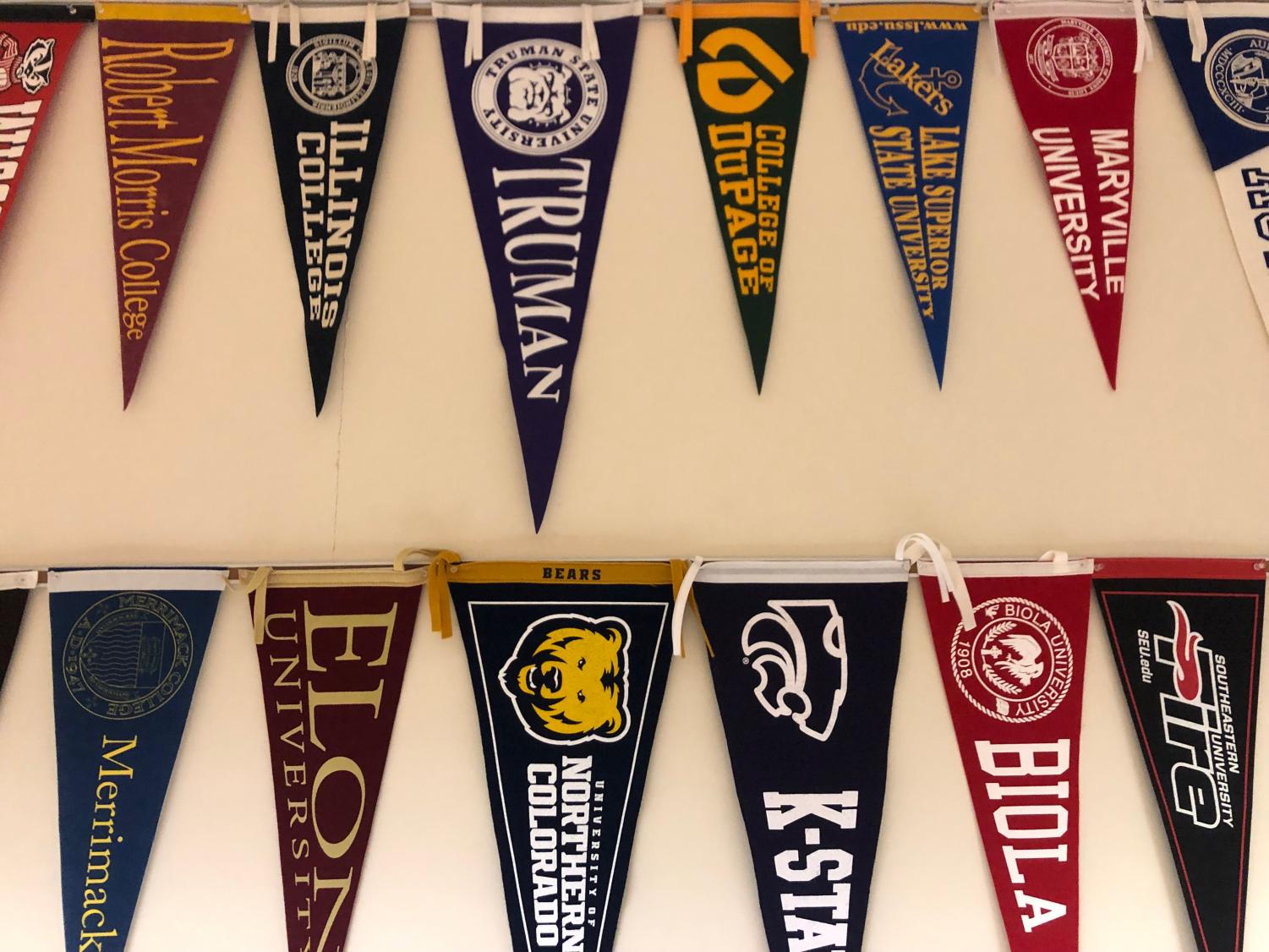Under pressure: Students face stress over post-high school plans
September 25, 2019
“What are your top schools?” is a question most high school upperclassmen learn to despise as their road to graduation shortens. At every social gathering possible, students brace themselves for the impending questions and judgments others tend to give, for better or for worse.
Students’ post-high school plans are obviously their own, individual choice. Yet, many feel pressured by those around them to go down certain paths, whether it be pressure to attend a prestigious, Ivy League university, or simply to attend college rather than going to work. There are certainly paths that are branded as ‘better’ or ‘good’ by society, and it’s hard for students to ignore those ideas even when going down those paths would be the wrong choice for them.
“For years, I have felt pressured to be perfect and fit this mold of super smart,” senior Grace Maeitta said. “People automatically assume that I am looking at Ivy Leagues or applying to super prestigious and selective schools.”
In a survey of 100 York students regarding pressures about post-high school plans, 71 percent of those attending college after high school said that the overall reputation of a college was an important or extremely important factor going into their college decision. Where, though, is this obsession over reputation stemming from?
“Our community at large can do a lot better at speaking and marketing about all the options and that really starts at home with the family unit,” school counselor Ashley Tucker said.
Seventy-four percent of York students claimed pressures regarding post-high school plans came from parents/family members and peers. Fortunately, not many students felt this pressure was caused by teachers (28 percent) or counselors (18 percent).
“[College pressures come from] parents, community expectations,” college and career counselor Amy Thompson said. “I hope the school isn’t conveying that. I mean, you look around the CCRC, and there’s all kinds of names of schools all over the place. We celebrate all the decisions kids make because it’s their decision.”
While one aspect of this issue is society’s praise towards schools with certain reputations or name recognition, college and career counselor Amy Thompson expressed that there is a stigma around choosing a plan other than college. Although a majority of York students do choose to go to a traditional four-year college or university, 18 percent of York students reported that they would be going down a different path after high school. These other options include community college (9 percent), military or military-related programs (4 percent), taking a gap year and more.
“I would understand the stigma [around community college] if we didn’t have a good community college,” Thompson said. “But we have a really, really good community college. Kids go there [to College of Dupage (COD)] and can go anywhere from there. I’ve seen kids who’ve gone to COD and then gone to ivy league schools.”
Despite the feeling some students have that this decision will be the breaking point of whether they have a successful life or not, according to York’s counselors, it isn’t.
“I think there is a myth out there that big schools mean more opportunities for internships and better networking opportunities,” Tucker said. “Everything is what you make it… wherever you go and whatever you do, the opportunities that you take advantage of are a result of what you do for yourself. Nobody hands you anything.”
Essentially, going to a top-notch school doesn’t necessarily guarantee anything for anyone. According to the Time article, ‘It Doesn’t Matter Where You Go to College’, studies have shown that the name of the school one attends is not a determining factor for employers; rather, your resume and projects you have taken apart of matter more.
“It’s what you’ve done on your job, what’s on your resume, what skills you possess and what your references are [that matters].” Thompson said. “It has truly become that it’s not as much about where you go, but what you do when you’re there.”
Unfortunately, many students still feel constraints to go to these ‘good’ universities and it causes an elevated amount of stress and anxiety about college applications.
“College acceptance and prestige is very different today than when our parents were younger 20 years ago,” junior Haley Brown said. “Students have more pressure than ever before to get in to a ‘good college’ and this disappointingly shows in their obsession to develop the perfect application.”
Still, it is admirable and impressive to see students work hard and be able to attend selective, prestigious universities. The point is, that no one should feel pressure to go down a certain path that isn’t the best fit for them.
“I wish I could wave a magic wand to wave and all of you would have the confidence to say, ‘I’m going to choose what’s right for me and not care what anyone else thinks’,” Thompson said. “If you are determined to be successful, you will be successful no matter where you go.”


